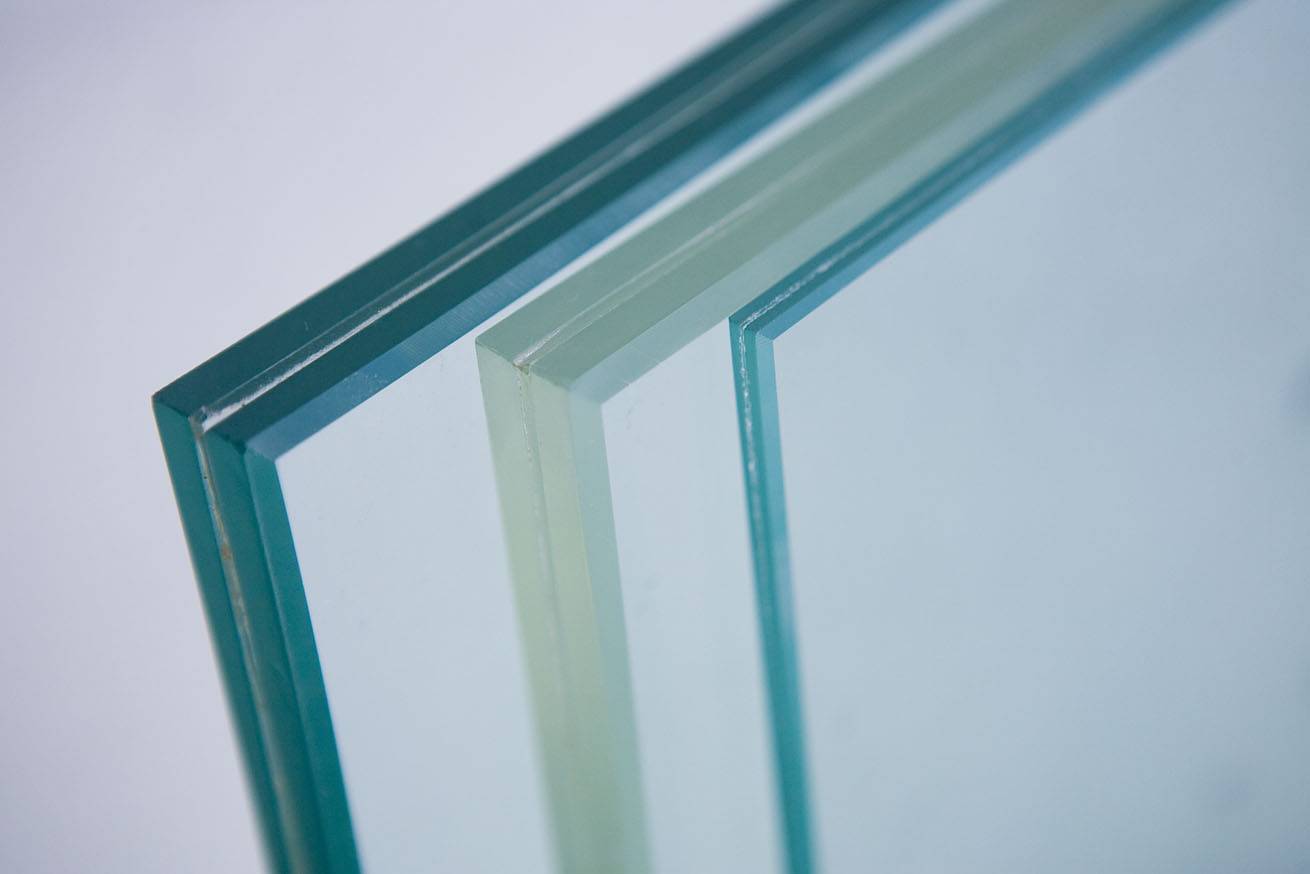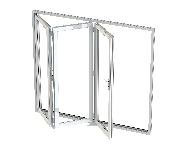Types And Advantages Of Door And Window Glass
Due to the transparent and glazing characteristics of glass, glass has become an indispensable material for modern architecture. Glass with different characteristics is required for different building parts, so glass with various functions such as tempered glass, insulating glass and laminated glass appears. This article will share with you the knowledge of these commonly used windows and doors.

Tempered glass
Tempered glass is obtained by heating the float glass to a vicinity of the softening point in a tempering furnace, and then rapidly and uniformly cooling it to form a uniform compressive stress on the surface thereof, thereby improving the mechanical strength and effectively improving the wind pressure resistance and impact resistance of the glass. Performance, improve the thermal shock resistance of glass. The good physical properties of tempered glass make it one of the standard for most high-end door and window glass.
Advantages of tempered glass:
1.Safety: When damaged by external force, the glass will be broken into small honeycomb-like obtuse-angled small particles, which will not cause serious damage to the human body. The sharp and large pieces of the ordinary glass are broken, which can cause serious damage to the human body.
2.High strength: 3-5 times higher than ordinary glass of the same thickness.
3.Stable heat resistance: has good thermal stability, can withstand the temperature is about 3 times the thickness of ordinary glass, can withstand 200 °C temperature changes.
Insulating glass
Insulating glass is a glass product in which two or more pieces of glass are separated by a frame filled with a molecular sieve adsorbent and a space of a certain width is sealed with butyl rubber and then sealed with silicone rubber or structural glue. It has good sound insulation, heat insulation, heat preservation, anti-condensation and fogging. The good energy-saving performance of insulating glass makes it one of the standard for most high-end door and window glass.
Advantages of insulating glass:
1.Sound insulation performance: Insulating glass is an ideal noise-proof material. Generally, the noise can be reduced by 30 decibels, and the inert gas can be reduced by about 5 decibels on the original basis.
2.thermal insulation performance: can effectively reduce the heat transfer coefficient U value, if filled with inert gas, can further reduce the heat transfer coefficient.
3.Anti-condensation fogging performance: Since the spacer strip of the insulating glass is filled with sufficient desiccant, it can effectively absorb the water vapor which may be infiltrated into the inner cavity and the outside, and ensure the air in the inner cavity of the hollow glass to be dried. Good anti-condensation fogging performance.
Laminated glass
Laminated glass is a composite glass made of high-temperature and high-pressure between two pieces of glass or multiple pieces of glass with a tough polyvinyl butyral film (PVB). Since the toughness of the PVB film is very good, when the laminated glass is violently impacted and broken by the external force, the film layer absorbs a large amount of punching ability and rapidly attenuates it, because the laminated glass is difficult to be broken even if the laminated glass is broken, the glass is broken. The pieces are basically adhered to the film, keeping the pieces on the entire piece of laminated glass from falling off, so it becomes a "safety glass" in the true sense.
Advantages of laminated glass
1.Safety: The laminated glass installed on the building is subjected to any external force impact. Even if the glass is broken, it can be completely kept in the original frame, and there is a certain wind and rain.
2.anti-UV: a great barrier to ultraviolet light in sunlight (up to 99% or more), to avoid ultraviolet radiation.
3.bulletproof and explosion-proof: the use of multi-layer laminated glass can produce a variety of levels of bulletproof, explosion-proof glass.
4.security purposes: because the glass knives can not be used to effectively cut the installed laminated glass, and the use of other tools to penetrate the laminated glass for a long time, the sound is large, it is difficult to cut or break the laminated glass into the room and It is easy to be found and has a strong resistance to malignant destruction, theft and violence.
LOW-E glass
LOW-E glass, also known as low-emission coated glass, is a film-based product made of multi-layered metal compounds on the surface of float glass by means of magnetron sputtering. It can be used to heat, household appliances and human body in winter. The heat is reflected back into the room and reduces the conduction of the glass itself, thereby greatly reducing heat loss. In summer, it can reduce the outdoor heat radiation into the room and play a good thermal insulation effect. Therefore, the film layer can block the heat transfer formed by the infrared radiation in the room, has a high reflectance to the far-infrared rays, and has excellent heat insulation performance.
Advantages of LOW-E glass:
1.Effectively improve visible light transmittance, ground reflectivity, low emissivity, wide lighting range, soft light quality, avoid light pollution and create a good ecological environment.
2.effectively control solar radiation, block the far-infrared radiation, the heat transfer coefficient U value is lower, so that the thermal insulation performance is enhanced, with good thermal insulation and energy saving effect.
3.Effectively block the transmission of ultraviolet rays and prevent the fading of indoor furniture, fabrics and artwork.

 Horizontal Slider
Horizontal Slider Awning
Awning Single Hung
Single Hung Double Hung
Double Hung Casement
Casement Fixed
Fixed Specialty
Specialty Folding
Folding




